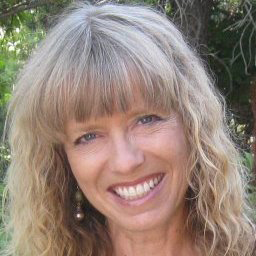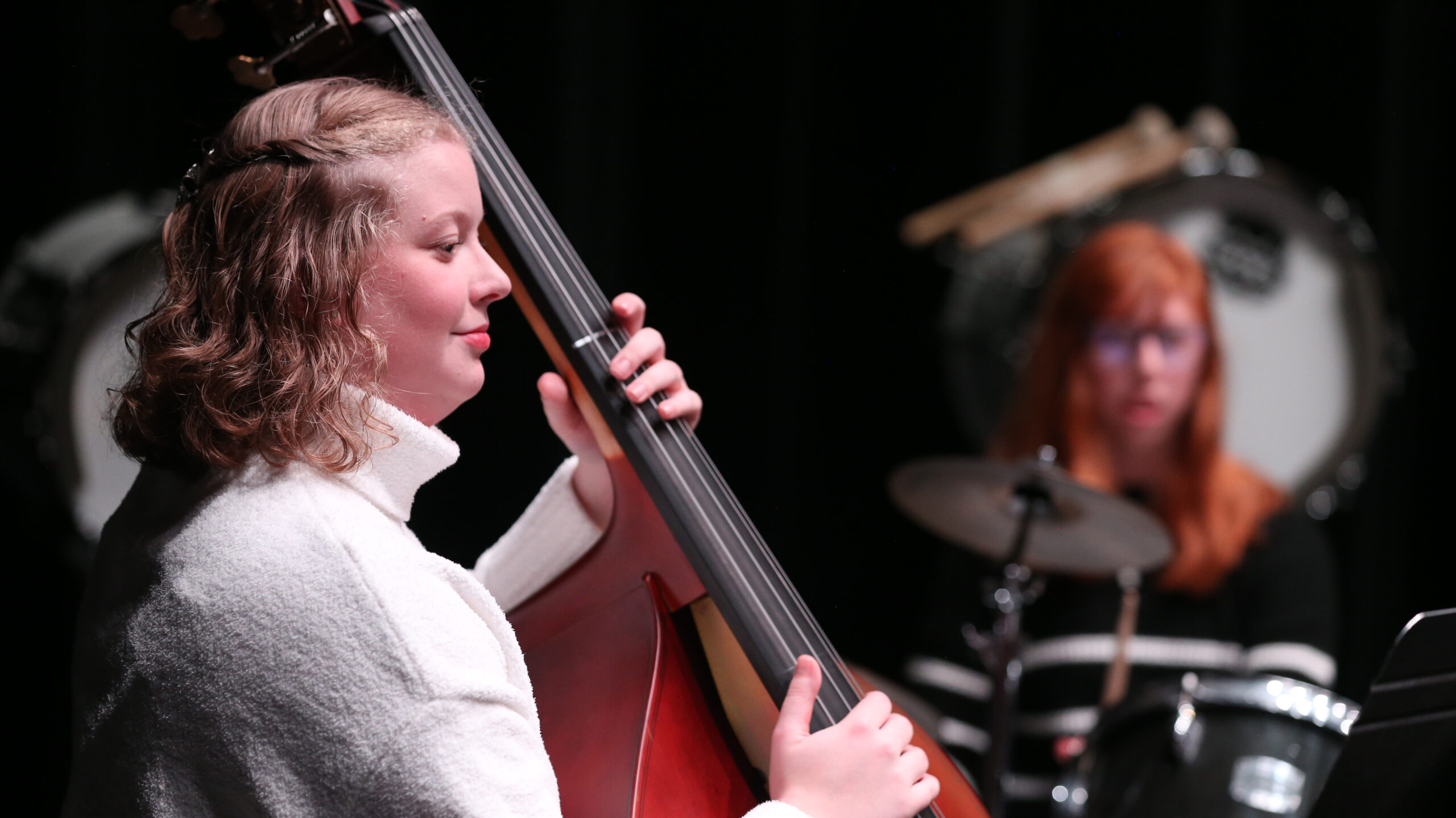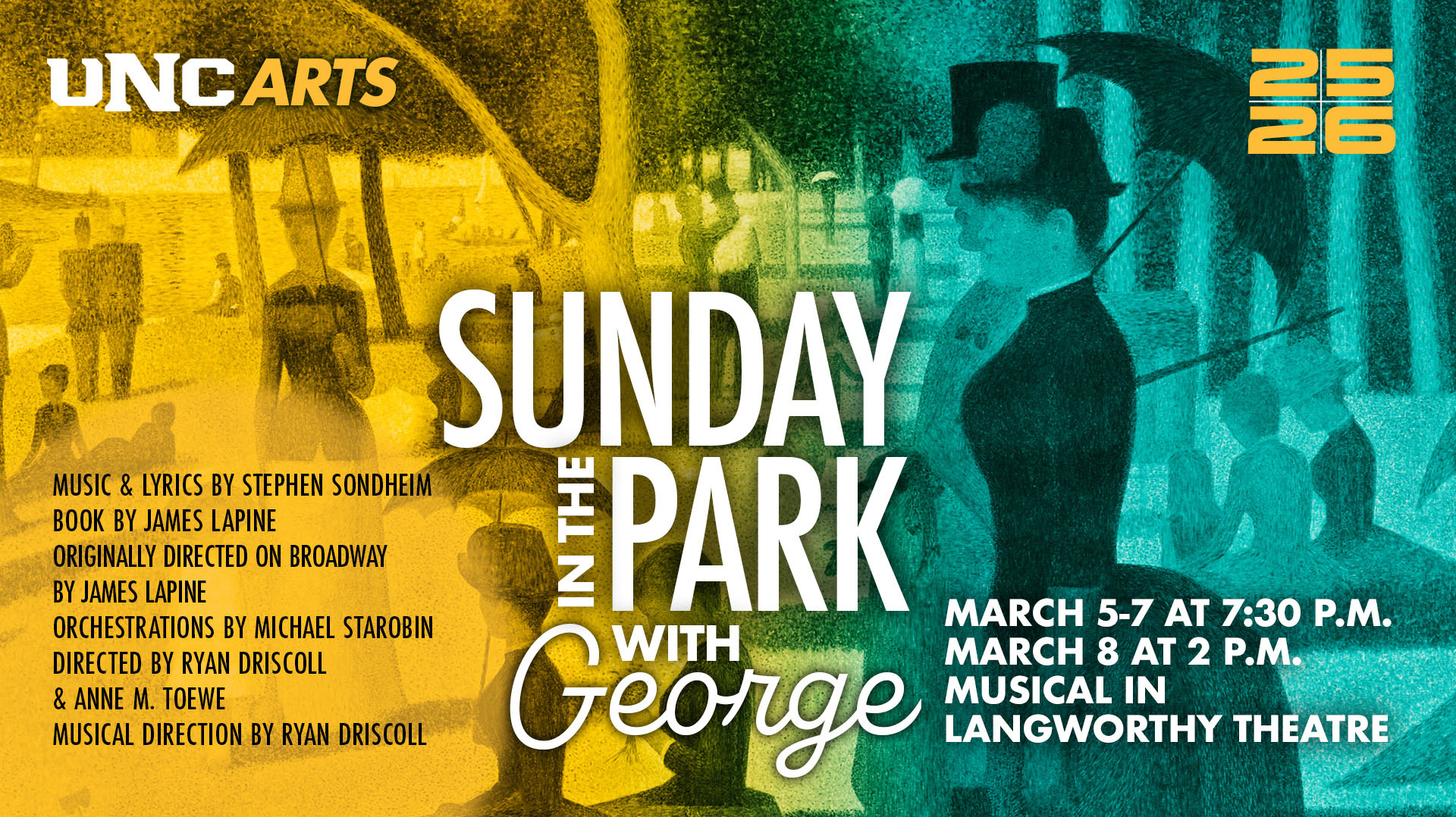
Article
April 27, 2020
Lisa Zimmerman on Poetry During Isolation
Professor Lisa Zimmerman shares some of her experiences with poetry during this crisis to remind everyone that there is hope through poetry and art, especially now.
National Poetry Month is celebrated each year throughout the month of April, after its introduction in 1996 by the Academy of American Poets. This year, many are sharing poetry as a source of inspiration and hope while under various worldwide lockdowns.
Lisa Zimmerman, professor of English, has taught poetry classes at the University of Northern Colorado for years. Her vibrant connection to poetry during this month has brought inspiration to many of her students and fellow faculty. Here, Zimmerman shares some of her experiences with poetry during this crisis to remind everyone that there is hope through poetry and art, especially now.

Poetry often makes sense when nothing else makes sense. And because poetry acknowledges everything under the sun — both in celebration and lament — reading poems during this isolation is a way to stay connected to the great human song of poetry and of the astonishments of life. Gwendolyn Brooks said that poetry is “life distilled.” If we stay away from the news for a little while, life is distilled.
For many years, I’ve posted a poem a day on Facebook during National Poetry Month. I’m finding that the poems I’m choosing this month are often poems of love and gratitude, reminders of what sustains us as human beings, rather than human doings.
A friend recently said that if self-pity is a coin, the flip side is gratitude. It is truly amazing to be alive at all, for example. Millions of people have lived and died on this tiny grass star. Look at us, we’re here, right now. Wow.
It’s helped me to check in every day to my poetry listservs because they’re celebrating poets and poetry with even more fanfare this month.
For example, Poets.org/Academy of American Poets is doing a “shelter in poems” — inviting anyone to share poems from the academy’s vast website that they’re taking shelter in during this troubling time. Some of my favorite poets/poems have already been shared. “Let Evening Come” by Jane Kenyon and “From Blossoms” by Li-Young Lee are two such poems.
I’m also reading and listening to wonderful poems by Rosemerry Wahtola Trommer, former Poet Laureate of the Western Slope. She’s had a remarkable practice for many years of writing a poem a day and has many published books and another one forthcoming. Her website is https://www.wordwoman.com/.
Her recent work is related to the pandemic and the way we’re living today. Here’s one of her recent poems:
Quarantine by Rosemerry Wahtola Trommer
This morning, my teenage boy and I
sit quiet on the couch. He does not move
to pick up his phone. I do not rise to work
or rush to make a meal. We sit, leaning
the trunks of our bodies into each other.
We do not say much. I close my eyes
and cherish his sapling weight.
There are so few people I dare now hug—
our hands, our bodies dangerous—
but here in this house so still I can almost
hear him growing, here in these minutes
that fell off the clock, here I remember
how surely we baptize each other with touch.
Such simple blessing. Silence. The metronome
of breath. The leaning in. Infectious love.
You can find Rosemerry Wahtola Trommer’s daily poems on her blog and can sign up for a poem a day: https://ahundredfallingveils.com/.
Two others to read:
More than ever before, there’s been a surge of people becoming involved in National Poetry Month this year. This tells me that people need something besides the barrage of statistics, briefings, videos and other anxiety-producing noise that is rushing at us every hour. Poetry slows down the writer and the reader, a slowing into a certain kind of attention. My friend George Kalamaras says, “Poetry comes closest to prayer, and I mean prayer in its broader sense as … energy entered, or evoked.”
My sister in New Zealand says that “lockdown” is a prison term; better to call this time of social isolation as sanctuary. Even for those of us worried about lost jobs, paying rent, keeping the lights on — poetry lets us focus and bear witness in a different way. W.S. Merwin once said: “Poetry addresses individuals in their most intimate, private, frightened and elated moments … because it comes closer than any other art form to addressing what cannot be said.”
It seems to me that people know they’ll get news from poetry, the kind of new that just might sustain them for another day. And the poets who are writing right now? It’s the same.
If you’re interested in poetry, check into listservs and read a few poems a day. There will be links to books and literary magazines. The poems will be so much more nourishing than the daily tsunami of woe, even if the poems are about the tsunami of woe. Bertolt Brecht wrote:
In the dark times
Will there also be singing?
Yes, there will also be singing.
About the dark times.
Poetry Websites:
Looking at poetry as a way to be creative while experiencing this isolation? Here are some poetry websites Lisa Zimmerman often frequents.
- Ted Kooser’s weekly poetry column: http://www.americanlifeinpoetry.org/index.html
- Poetry 180 (Billy Collins): http://www.loc.gov/poetry/180/
- Poetry Daily: http://poems.com/today.htm
- Verse Daily: http://www.versedaily.org/
- Colorado Poets Center: http://coloradopoetscenter.org/
- The Poetry Foundation: http://www.poetryfoundation.org/
- The Poetry Foundation podcasts: https://www.poetryfoundation.org/podcasts
- Other podcasts: The Slowdown, created by former US Poet Laureate Tracy K. Smith.
- Check this out, for current times: https://www.slowdownshow.org/episode/2020/04/16/our-favorite-episodes-on-hope-kindness-and-more
- And maybe, instead of TV for a night: https://buttonpoetry.com/category/videos/
- Watch Lisa Zimmerman read some of her own poetry here: https://www.youtube.com/watch?v=d5Pc9Ol1gR8&feature=youtu.be
Top image from poets.org.



